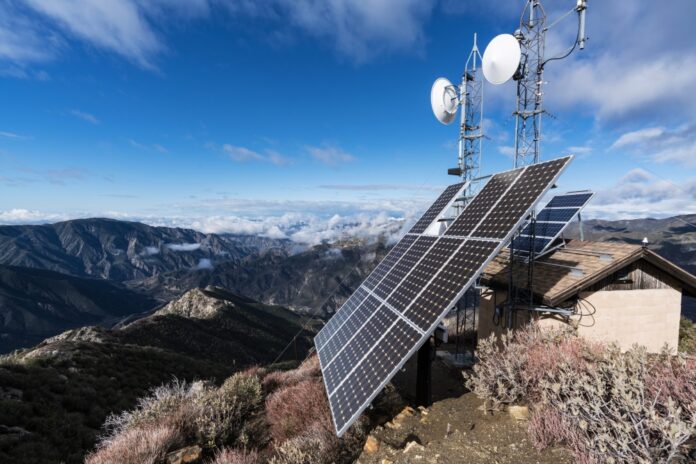The energy crisis has forced telcos to look for more look aggressive ways to reduce power consumption
The energy crisis could and should drive collaboration between the telecom and energy sectors, according to Telia and Vodafone.
Sharing the stage at Mobile World Congress, Allison Kirkby, CEO of Telia, and Margherita Della Valle, interim CEO and CFO of Vodafone Group, discussed how they are dealing with soaring energy costs and how the crisis is opening opportunities for working more closely with energy providers.
As energy infrastructure needs to be “modernised and decentralised,” there is likely to be “convergence” between the two sectors, said Kirkby and pointed to 5G private networks as a way telcos can help to secure and digitise those assets.
“Modern societies need very strong digital and energy infrastructures…That backbone needs to come more and more together because of its importance from a sovereign…and security point of view,” she stated.
Collaboration between telcos too
Della Valle said it was essential for there to be collaboration between energy and telco providers, but also among telcos themselves. She mentioned an initiative that has been running since the summer for “telcos in every market pooling their energy needs so that we can support even bigger renewable projects as anchor tenants with energy providers.” But she did not provide further details about the status of the project or how widely it is adopted.
High costs call for drastic measures
Both telco chief executives shared the brutal financial reality of the surge in energy prices.
In a sign of how things have changed in the last year, Kirby said she had never discussed the cost of energy in her 15-year career in the telecom industry because it was always stable and new technology generations brought efficiency gains. But that had changed “overnight.”
Telia’s annual energy bill went from SEK 1.3 billion to more than SEK 2 billion, she said. Similarly, Della Valle said Vodafone used to spend €600 million per year in Europe on energy and now that number is around €1.3 billion.
In response, both operators have accelerated energy-saving technology projects, including retiring legacy copper and 3G networks.
The mother of invention
Telia recently started trials with energy startup Polarium to test a smart battery energy storage system based on Lithium-ion technology. The system allows Telia to conserve energy use but also contribute energy back into the power grid from its own networks.
“The energy crisis has accelerated the need for smarter energy consumption, reduced emissions, and it’s also putting much more emphasis on resilience and the security of both the digital infrastructure and the energy infrastructure,” said Kirkby.
Della Valle said Vodafone invested €100 million in 2022 on energy-efficiency initiatives, such as “new algorithms to manage cooling in our data centres and base stations” and “dynamically turn capacity on and off” at base station sites as traffic levels go up and down to use less power when it is not needed. She also flagged an open RAN solution that Vodafone is showing at MWC23 that “consumes 35% less energy than normal 5G equipment”.
What we need is more IoT
On the other hand, the telcos are also seeing opportunities to deliver services to business customers that can help to reduce their energy costs, particularly Internet of Things (IoT) applications.
Kirkby said Telia has seen more demand from the property sector for IoT “heat optimisation” tools and from the transportation sector for efficient fleet management. Della Valle said one of the biggest applications for Vodafone was in fleet management.



